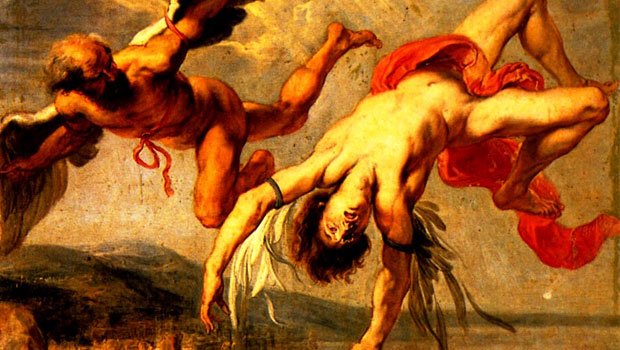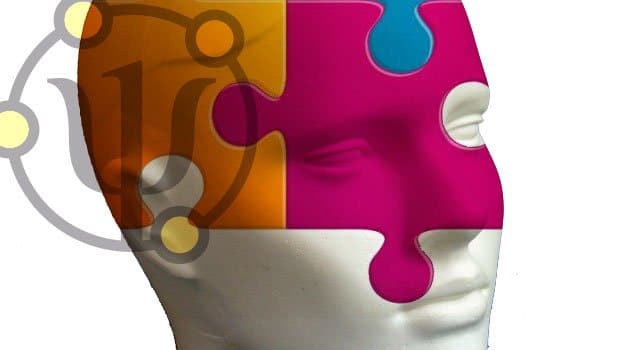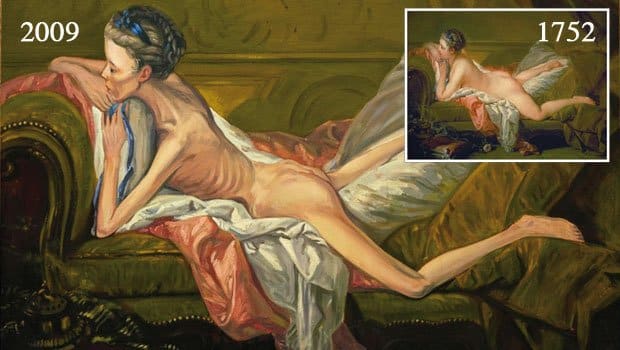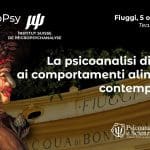I would like to say a big thank you to the organisers of this important study day for inviting me to give a contribution to the important theme of the role of parenting.
The latest news pushes us to question ourselves deeply about an absolutely strategic role, since it is the very role of parenting that allows a human being to become a person gifted with a sufficient psychic balance, which allows one to live without overwhelming sufferances and with the possibility of achieving, compatibly with the reality principle, one’s own deep desires; which I personally believe to be the definition of normality.
There is such a massive diffusion of irrationality, an absolutely scandalous organisation of the safeguarding of narcissism through the mass media that today I feel forced to express concepts which will probably result banal for the many psychological professionals reading, but which the enormous pressure of that semi-delusional clamouring mass of the self-made social media experts risks making them vanish.
When a delusion is shared by an enormous mass of people it ceases to be believed as such: an example for all are the fundamentalist phases of religion and ideology, in which in the name of unshakeable self-referential certainties, one can kill not only without a sense of guilt but even cradling the sensation of having served the Absolute Justice. The nazi extermination camps, the soviet gulags, the ethnic cleansing, the ISIS of our days are the results of these delusions.
Does a parent have any power? Apart from the enormous imbalance of the physical strengths involved, here we are speaking about the human psychism and we can say without any difficulty: Yes he does!
A parent can make a human being go crazy. It is sufficient to look at the studies of Gregory Bateson on the ‘double bind’, believed to be one of the various causes of the schizophrenia.
As you all know the so-called ‘double bind’ is a situation in which the communication between two individuals who are connected by a close and important emotional relationship, presents an unresolvable conflict between the level of explicit verbal speech and the non-verbal meta-communicative level (the tone of voice, the facial expression, the modulation of the gaze, the gesture, the behaviour), and the situation is such that the receiver of the message does not have the minimal possibility of deciding which of the two messages is true (for the fact that they are in evident contradiction) and not even of underlining its incongruence.
A mother that says to her child: “I love you!” and contemporaneously becomes rigid and pushes him away, obviously, if such behaviour is repeated, rigid, stereotypical and continued through time, will place the child in an anxious unresolvable loop: empathetically the child feels the distance and repulsion by the mother but these manifestations are not only denied but even contradicted.
If the child gives credence to his meta-communicative perception he must not only admit that the mother from whom his life depends, hates him, but also that she is lying.
Equally, if he accepts the manifest communication (I love you) he has to admit that his perceptive capabilities are flawed, losing any kind of trust in them. The result is in general a tormenting oscillation between the two perceptions which is often resolved with the splitting of his forming Ego.
I have made this brief revision with you to remind everyone that parents hold in their hands the minds of their children.
It is important to remember that each person undergoes a tiring period, full of sufferance, of the maturing of his psychic apparatus that takes him from a situation in which only partial objects exist (which he probably inherits and receives in the uterus during the almost incessant phases of intrauterine dreaming) to the adult phase in which each person recognises the existence of ‘not-me’ objects, that do not fall under the influence of his power and do not answer to his desires. The passage, in other words, from narcissism to reality-testing.
It is the very paternal figure that splits the mother-child partnership, the so-called fusional phase, a phase in which the child sees himself fused with the mother, a phase in which, accidents aside, the child experiments the maternal pole as a source of total and continuous availability.
A primary mental state which is increased more so during breast-feeding and which, if it were not to determine through the “traumatic penetration of the third” (the Father) an experience of limits, it would make the child unfit to live in the world, a reality inevitably constituted by sacrifices, delays of satisfaction and frustrations.
It is effectively the father who contends for the exclusive possession of the mother and who makes the child’s omnipotent and narcissistic phantasy of being one whole thing with her, wane in determining this crucial function of separation, allowing the progressive perception of the external objects.
The renunciation of one’s own vicissitude of omnipotence is not immediate, but it avails itself of a passing phase in which the child projects and attributes to the father the feeling of unlimited power to which he is renouncing. This is the root of the idea of God.
Regarding this, I would like to cite the case of a young girl of the age of nineteen who comes to my observation for a form of almost total inhibition towards life: her mood is not actually depressed, only that she has no friends, or however she does everything to lose them, she tends to remain closed in her room, in her nest, in a semi-autistic form of withdrawal.
During the course of the focal treatment that I establish she soon becomes aware of her desperate attempt of remaining a child, in other terms to use a congruous definition, to safeguard her symbiotic relationship with her mother (her father is only a frill, an attribute of the maternal image).
With the substantial absence of the ‘reality ambassador’ role which the father should normally have, the child’s frustrations are elaborated with a dangerous persecutory tendency. Let’s see what she says:
“Every time something doesn’t work as I expect, I am always ready to blame others [persecutory vicissitude].
I have realised this before but then I think that it’s always and only my father’s and my mother’s fault.
I know, I’m still a child. I have realised perfectly here, as never before, that I can’t minimally have a relationship with others, above all when I am alone.
I think of the day I ran away from the house that my parents had rented for me at university and that I shared with other girls. I think of the moment in which I should have separated myself from my parents. I felt totally abandoned. I thought that I would never get on with my flat mates: I saw them a thousand times more confident than me.
At that time I began not speaking to my parents, as if I wanted to get back at them for something. I behaved really badly. But I almost couldn’t speak, the words wouldn’t come out. [here we can see evidence of an intense regression] And my parents, desperate, couldn’t sleep at night, but I had become once again that spoilt child who got everything she wanted through her tantrums: one afternoon I remained in the house and later, crying I called my father ordering him to come and collect me. I don’t remember any punishment from my father. They have rarely punished me: crying I always managed to get what I wanted”.
It truly seems that this generation of parents has substantially forgotten that the tendency to satisfy their child’s every desire to avoid even the minimal conflict, that the absence of punishments and frustrations that a certain type of popular psychology has sustained, has disastrous consequences in the maturing of the human being’s psychic apparatus.
The absence of a confrontation with the “Law of the Father”, the absence of reasonable privation, of frustration, of postponement of the desire and of responsibility and the price of one’s mistakes, has created a generation that makes the narcissistic self-gratification and the self-referentiality its own creed, a generation for which the Other is only a disturbing presence, a perception to be eliminated in every way.
Freud’s warning in “On Narcissism: An Introduction” (1914) was wasted: “If we consider the attitude of the parents who are particularly tender towards their children, we must recognise that such behaviour is the revivescence and the reproduction of their own narcissism to which those parents have renounced long since”.
The passage from the fusional state with the mother, the omnipotence of thought and the narcissistic state, which are first primary and then secondary in the child, is made possible by the very pressure of the ‘third’ (the “traumatic penetration of the third” as Peluffo efficaciously defined it) in other words by the penetration of the Father in the fusional dyad mother-child.
Such a phase, characterised by various stages, passes through one in which the father (the Third, as I already defined) is lived as a persecutory presence.
Regarding this I shall refer to the example taken from a case of infant observation which I already mentioned in a previous article (Trauma, Memory and Cybernetic Structure of The Mind, Psychoanalysis and Science, June, 2002).
A lively child of the age of three or four years, who we will call Sofia, is walking beside her mother in a park, the father follows the two ladies of the family at a close distance.
Skipping, suddenly Sofia trips over a stone and falls to the ground scraping her hands.
She gets up furious and shouts like a possessed child: “Naughty daddy, naughty daddy!”
The logical explanations offered by the parents to free the father from blame, are of no avail.
The child calms down only after the physiological expulsion of the aggression provoked by the trauma. Sofia, thanks to the painful encounter with the frustrations of life, has recently renounced to the infantile omnipotence state, she has come out of the foetus-maternal symbiosis and has allowed a new entity to enter into her representational universe: the Omnipotent Father, the Deus ex machina, the Demiurge, The One with which all is possible and decides all, an imago upon which she has projected all of the omnipotence which she has had to renounce.
If this code island should remain whole and shall not be re-elaborated with the integration of the successive information, which will tell Sofia that even her father is a twig within the universe, this minuscule piece of archaic software could become hypertrophic up to the structuring of a delusion of persecution: my life is in the hands of Satan or of God (which after all, from a psychodynamic point of view, are the same thing corresponding to the omnipotent anthropomorphised Imagoes of the endogenous perception of the primary urging base of the human being: Eros and Thanatos) I am the pawn of the Eternal, and so on…
Even Freud clearly wrote about it: “When the paranoiac elects as his own “persecutor” a person of his entourage he raises him to the level of Father, he places him in a condition that makes him responsible of all the misfortunes which his sensibility reveals”. (Totem and taboo: resemblances between the psychic lives of savages and neurotics, 1912, Works, vol. 7)
It is for this reason, for example, that even a narcissistic father, a father who does not show his inevitable weaknesses in respect to life’s challenges, who acts in an omnipotent and untouchable way, can be dangerous.
Now we can ask ourselves what this epochal change is due to, characterised by the passage from a phase in which the Father was the Absolute Master of the scene, to the actual phase in which we see that evanescent figure, which we still call Father out of habit, prone to his children’s desires.
My hypothesis is that the enormous deployment of aggressiveness in the organised form of the two world wars which provoked an immense number of victims, probably determined a huge accumulation of a sense of guilt which combined with a reaction of repulsion and revolt towards the established authority which exploded in ’68, the era in which juveniles killed the Father, deposed him from the throne, mocking his authority.
But having felt such sentiments of assassin hatred towards the Father, this exposed the future parents (the children of ’68) because of the existence of the law of “an eye for an eye”, to a huge anguish of annihilation: the throne of the father became red-hot, untouchable so they preferred to become the “brother of my son” (Oh, how many times have I heard this phrase!), which had frightening consequences.
Claudio Risé, in his book “Il padre l’assente inaccettabile” (The unacceptable absent Father), reports some extremely convincing statistics that comes from the USA, according to which 90% of homeless subjects do not have a father figure in the family, 70% of juvenile delinquents hosted in the state reformatories and no less than 85% of prisoners also come from families without fathers, while the percentage of juvenile suicides with absent fathers amounts to 63% in total.
Finally no less than 72% of homicidal adolescents and 60% of rapists have grown up in houses without fathers. I believe that similar statistics can also be found in our own country.
Regarding the so-called traumatic penetration of the Third in the fusional universe it is necessary that the object is unequivocally different from the mother to which it has fused. And as ‘diversity’ it is not intended as physiognomic, character and cultural aspects (these belong to the world of words, which do not exist in the unconscious: in the unconscious, as Freud has specified several times, only the “thing presentation” exists. Let’s read his works “The Unconscious” (1915):
“Suddenly we think we have understood the difference between a conscious representation and an unconscious representation. Contrary to our belief this does not involve two different transcriptions of the same content in different psychic localities nor two different functional situations of investment in the same locality; the situation is instead the following: the conscious representation includes the presentation of the thing in addition to the presentation of the corresponding word, while the unconscious one is the presentation of thing alone. The unconscious system contains the investments that the objects have as things, in other words the first and authentic objective cathexis; the preconscious system comes from the fact that this representation of the thing is hyper-invested due to its connection with the relative verbal representations. We have the right to suppose that it is this hyper-cathexis which determines a higher psychic organisation, making the substitution of the primary process with the secondary process, that dominates in the preconscious, possible”.
From an unconscious point of view the culture, the names and the denominations are worth zero. The diversity is given to the presence of the penis or to its absence. It is this fact which connotes the perception of another human being traumatically (in a positive sense) different from oneself. And also the secondary sexual characteristics, the shape of the body, the distribution of the body hair, the intensity of physical strength and the frequencies of the voice, have their economy in this phenomenon.
I would like to underline that I am not speaking about the aspect of the gender choice, which is not the object of this digression, but of the total perceptive gestalt of the object. If we allow children to be born in a homogeneous universe (in other terms one in which the two love objects are the same) the child will have high probabilities of undergoing a narcissistic fixation. Everyone can draw their own conclusion but being careful of that terrible defence mechanism which is the isolation, for which certain notions are only true during the sessions or when we study them in a book, but no, these do not regard our existence: here ideology governs.
I would like to conclude with this marvellous citation of the Maestro, Sigmund Freud:
“The animistic phase corresponds both chronologically and for its content to the narcissism, the religious phase corresponds to the degree of the return to consciousness of the object characterised by the bond with its parents, and the scientific phase finds its exact equivalent in that state of maturity of the individual who has renounced to the ‘pleasure principle’ and, adapting to the reality, looks for his object in the external world”. (Sigmund Freud, Totem And Taboo, 1912-1913).
Translated by Linda De Nardo
Nel 2024 riceve il Premio Accademico d’Onore della Accademia Culturale Internazionale Cartagine 2.0.
Doctor Quirino Zangrilli was born in Fiuggi in 1955. Graduated with honours in Medicine and Surgery in 1980, he practices Psychoanalysis, with intensive method, since 1982. He is author of 72 scientific pubblications. He has attended as speaker or president of session to many national and international scientific Conventions. His book “La vita:involucro vuoto” (Life: empty involucre), published by Borla in 1993, has been in use by the Chair of Dynamic Psychology at Turin’s University since 1994. He is the author and founder of the multimedia review “Psicoanalisi e Scienza” (Psychoanalysis and Science), the most read Italian on line review of psychoanalysis. In 2012 he participated as a Speaker at the Scientific Festival of BergamoScienza. In 2013 he illustrated his research on the maternal-fetal interaction in the Special Session of the XI World Congress of Perinatal Medicine in Moscow with his relation “Intrauterine Imprinting”. He is visiting teacher at Moscow Institute of psychoanalysis and training psychoanalist of Swiss Institute of Micropsychoanalysis.
In 2024 he received the Honorary Academic Award of the Carthage 2.0 International Cultural Academy
Le Le Docteur Quirino Zangrilli est né à Fiuggi en 1955. Diplômé avec mention en Médecine et Chirurgie en 1980, il pratique la psychanalyse depuis 1982, en utilisant une technique intensive. Il est l’auteur de 72 livres et publications scientifiques. Il a participé en tant que conférencier ou président de session à de nombreuses conférences scientifiques nationales et internationales. Son livre “La vie : enveloppe vide”, publié par Borla en 1993, est adopté depuis 1994 par la Chaire de Psychologie Dynamique de l’Université de Turin. En 1994, il a reçu le “Prix national Ciociaria de médecine”. Il a conçu et fondé le magazine multimédia “Psicoanalisi e Scienza”, qui est le magazine de psychanalyse en ligne en italien le plus suivi au monde. (Source : Entireweb, Alexa, Google, Virgilio, Arianna., etc.). En 2012, il a participé en tant que conférencier à la colloque scientifique de BergamoScienza. En 2013, il a exposé ses études sur l’interaction materno-fœtale lors de la session spéciale du XIe Congrès mondial de médecine périnatale à Moscou avec le rapport “Intrauterine Imprinting”. Il est chargé d’enseignement au cours de spécialisation de trois ans en psychanalyse, psychothérapie psychanalytique et consultation psychanalytique à l’Université de Moscou. Il est membre didacticien de l’Institut Suisse de Micropsychanalyse et de la Commission pour la Pratique de celui-ci.
En 2024, il reçoit le Prix Académique Honoraire de l’Académie Culturelle Internationale Carthage 2.0.
В 2024 был награжден Почетной академической премией Академии Международной Культуры «Карфаген 2.0».













